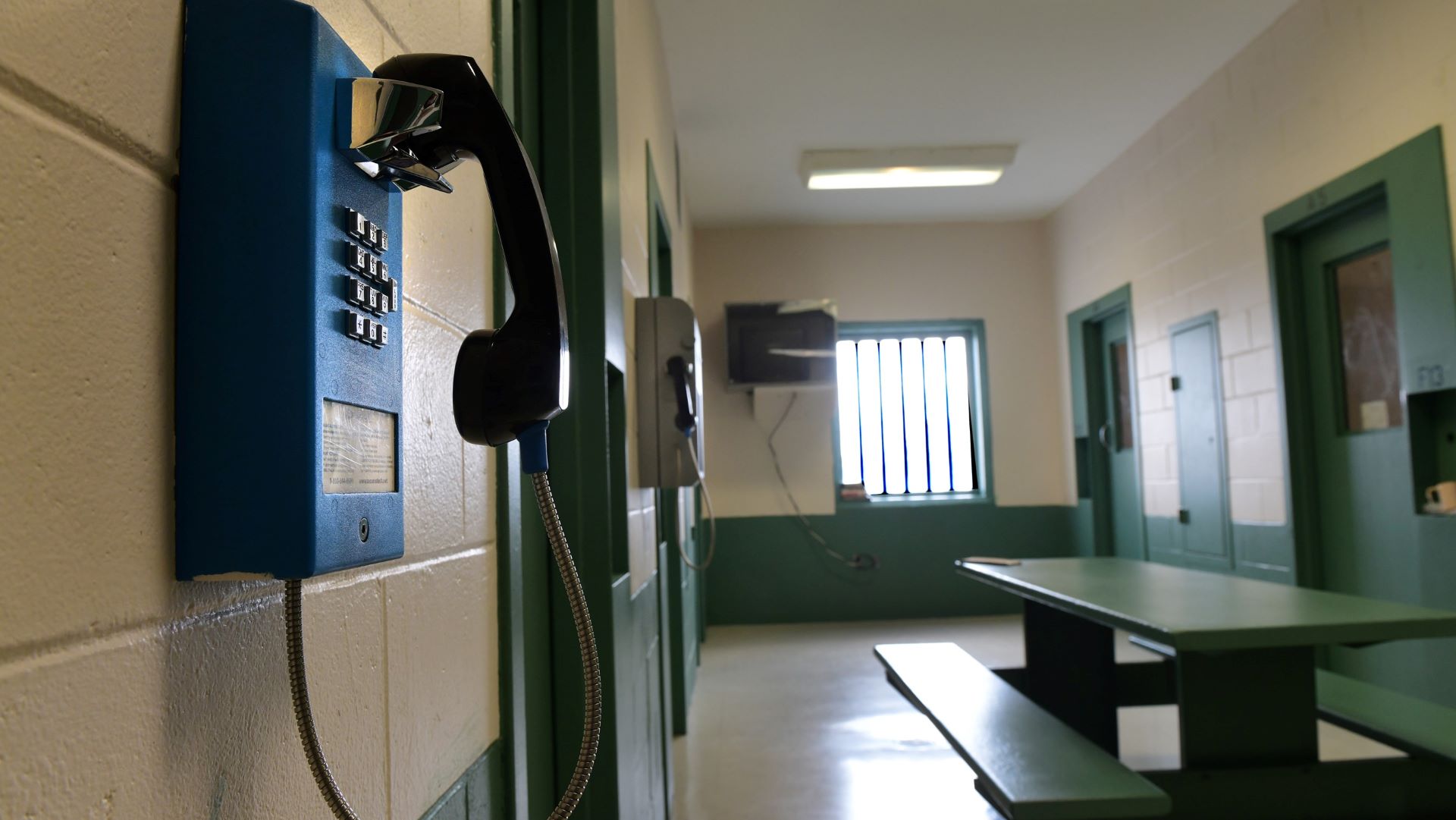A study group on Tuesday finalized recommendations aimed at preventing Maine jails and prisons from recording attorney-client phone calls, but fell short of defining how to enforce its proposed changes or penalize facilities that record and share confidential calls in the future.
Members of the group agreed that Maine county jails must confirm for defense lawyers and incarcerated people that a phone number is private and will not be recorded by the jail’s phone system. This comes on top of earlier recommendations that law enforcement and prosecutorial offices adopt policies and write a uniform procedure to prevent the recording of attorney-client phone calls and respond to any future breaches if a call is recorded.
Under the group’s recommendations, a centralized registry of attorney phone numbers would be created and shared with jails and prisons on a weekly basis. If implemented, this would be the first statewide solution to prevent the recording of attorney-client phone calls at jails and prisons.
“We accomplished as much as we could accomplish as a group,” said state Sen. Anne Carney (D-Cape Elizabeth) and co-chair of the study group.
The group’s recommendations come after 2½ years of reporting by The Maine Monitor that found a long-standing problem with jails recording confidential phone calls between jailed clients and their lawyers. The recommendations now go to the state Legislature, which created the study group after refusing to pass proposed new regulations this spring.
The group declined to recommend potential financial penalties and felony charges for investigators or prosecutors who “eavesdrop, record or transmit” recordings of attorney-client phone calls. Proposed penalties were parts of a bill considered by state lawmakers earlier this year.
Instead of punishments, lawmakers may be asked to consider whether to exclude law enforcement investigators or prosecutors who receive recordings of attorney-client phone calls from further participating in a case.
The proposal to exclude violators from participating in the case deeply divided the study group. Three members supported it and five were opposed. Half of the members were absent during the vote and will have until Thursday to cast a ballot.
Justin Andrus, the executive director of the Maine Commission on Indigent Legal Services, wrote the original bill and has personal experience as a defense attorney who had phone calls with incarcerated clients recorded by Maine jails. He was hopeful the remainder of the group would vote to support the exclusion rule in place of the harsher penalties he suggested earlier in the year.
“It’s not my goal to bounce anyone out of cases or to see them charged with crimes or to take fees or fines. My goal is to do what’s necessary to ensure the confidentiality of communications and I think we can accomplish that with some of these remedies,” Andrus said in an interview after the meeting.
Six county jails recorded nearly 1,000 phone calls that people in jail made to their lawyers between 2019 and 2020, data obtained by the Monitor showed. On multiple occasions, recordings were later shared with police or prosecutors, who listened to parts of the confidential conversations, data, court records and interviews showed. State officials said they stopped listening when it became apparent it was a lawyer and defendant speaking.
In one extreme example, law enforcement personnel listened to dozens of recordings of one lawyer’s calls with clients at the Aroostook County Jail and didn’t inform him until much later.
There is currently no easy way for lawyers to provide their phone number to the 15 county jails and Department of Corrections to prevent their calls with clients from being recorded. Lawyers must contact each facility individually.
Maine’s elected sheriffs, who run the county jails, were sent a list of hundreds of phone numbers that belong to attorneys to designate as private in inmate phone systems in May 2020 and May 2022 so that calls to those numbers would no longer be recorded, the Monitor reported. The list will continue to need to be updated.
The study group recommended that the Maine Commission on Indigent Legal Services, or MCILS, be responsible for creating a centralized registry of attorney phone numbers, which would be sent weekly to the sheriffs and Department of Corrections.
A slim majority voted, 7-6, that the list would be an official notice of an attorney’s phone number if a lawyer later found they were recorded and wanted to pursue dismissal or suppression in court.
Lisa Marchese, deputy attorney general of the criminal division, said the list is helpful but not a “cure-all” to the problem of attorneys not registering their phone numbers with the county jails to prevent the recording of their phone calls.
“I think it will help. I don’t think it should excuse the responsibility of primary counsel to notify the jails of all their contact information,” Marchese said.
Scott Landry, an associate commissioner with the department of corrections, also supported the list as a supplemental tool for the jails and prisons to verify lawyers’ phone numbers. But he said the list shouldn’t replace lawyers directly contacting a facility to register their phone number.
The study group also looked at the availability of confidential meeting space at courthouses, jails and prisons for lawyers and clients to meet.
The study group will leave it up to lawmakers next year to decide whether to direct the courts to undertake an analysis of existing and needed confidential meeting space for lawyers and clients in the courthouses across the state. Initial data provided by the judicial branch show there are limited conference rooms available to defense lawyers and incarcerated clients to meet in before hearings.
“We still have courthouses that aren’t new and lacking in space,” Carney said. “We need to really understand where we need to improve the spaces available to criminal defendants and their lawyers.”
Samantha Hogan reports on the criminal justice and government accountability for The Maine Monitor. Reach her with other story by email: gro.r1766108863otino1766108863menia1766108863meht@1766108863ahtna1766108863mas1766108863.








